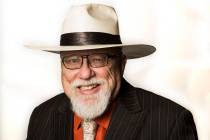Cancer anxiety a factor in treatment
It was medical news that attracted readers around the world: A new study shows that more women who have developed cancer in one breast are opting for a preventive double mastectomy — even if the best scientific evidence shows they’re not at higher risk for getting the disease in the second breast.
Researchers conducting the study, which was published in mid-May in JAMA Surgery, surveyed nearly 1,400 women who had received a breast cancer diagnosis. The procedure to remove both the cancerous breast and the noncancerous breast — known as contralateral prophylactic mastectomy or CPM — was medically indicated because of known genetic risk factors in about 10 percent of the women.
Neither the known genetic risk factors nor the family history that would necessitate this more extreme option was present in the other 90 percent.
What the researchers found is that 70 percent of the women who did opt for CPM did so when it was not deemed medically indicated.
The news coverage of the study often included responses from medical professionals who seemed mystified that reasonable women would choose to have a double mastectomy if they understood more about the disease and its treatment options.
“It (the study) begs the question of whether or not women are fully aware of all their options,” said Dr. Catheryn Yashar, an associate professor of radiation oncology at the University of California, San Diego and a representative of The BC5 Project, a national group focusing on broadening awareness of breast cancer treatment options.
Well, from the women I’ve interviewed in the past decade who’ve chosen to go the double mastectomy route, including Tara Tilton, a 36-year-old Colgate marketer who lives in southwest Las Vegas, they make their decisions precisely because they’ve made it their business to exhaustively study the disease and its treatment options.
How little is known about the disease actually bothers them more than what is known.
Even their doctors have said they can hold their own in discussions with a cancer specialist.
Tilton, who was featured in a recent Mother’s Day piece in the Review-Journal, fully understood what Dr. Souzan El-Eid, a breast surgeon with Comprehensive Cancer Centers of Nevada, told her — that she only needed a lumpectomy on one breast, that her cancer was not of the most dangerous known genetic types.
“We talked over all her options for a long time, just as I do with all my patients,” El-Eid said, stressing Tilton knew that the best scientific evidence available today shows that there is a low risk of developing cancer in her opposite breast.
What Tilton also knew is this: Despite billions of dollars spent on cancer research, her biggest risk factor for getting the modern day plague that still kills 40,000 American women a year was simply being a woman, that researchers strongly suspect there are other genetic risk factors for the disease.
None of the other known risk factors — genetics, family history, advancing age, radiation exposure, obesity, excessive drinking of alcohol, beginning periods at a younger age, beginning menopause at an older age, having a first child at an older age or post-menopausal hormonal therapy — applied to her.
“I don’t know why I got it and neither do researchers,” Tilton said. “Researchers obviously don’t know everything. I do know I’ve already had it once. My doctor didn’t push me to get a double mastectomy, far from it. She gave me options. What I do know is that it can still come back somewhere, but I want to reduce my chances. I don’t want to have to go through this with the other breast, surgery and chemotherapy. I wanted to give myself as much peace of mind as possible.”
That worry over cancer recurrence appears to be a huge factor in women choosing to have double mastectomies was acknowledged in a statement by Dr. Sarah Hawley, an associate professor of internal medicine at the University of Michigan medical school and lead author of the study.
She added: “For women who do not have a strong family history or a genetic finding, we would argue it’s probably not appropriate to get the unaffected breast removed,” Hawley said.
Dr. Mary Ann Allison, a Comprehensive Cancer Centers medical oncologist who sees women struggle with options for their treatment, says Hawley’s conclusion may well make sense scientifically today but each woman diagnosed with breast cancer must make a decision that’s right for them to be able to function well emotionally for the rest of their lives.
Tilton agrees.
“Every single person is different,” she said. “If you take a less drastic approach in your treatment, you’re exactly right. When you’re dealing with so much that is unknown, you have to listen and study and do what you feel gives you the best chance, that gives you the best peace of mind. That is what is appropriate.”
Contact reporter Paul Harasim at pharasim@reviewjournal.com or 702-387-2908.

















